Sharon Tate: The Radiant Star Whose Light Endured a Tragic Eclipse
Imagine a young woman stepping into the dazzling glow of 1960s Hollywood — her golden curls glistening under California’s sun, her smile lighting up every room she entered. That was Sharon Tate — a vision of grace, charm, and unshakable warmth. She wasn’t just beautiful; she was magnetic, the kind of presence that made you pause mid-conversation. But behind the glamour and flashbulbs, her story carried both the magic of dreams and the cruelty of fate. This is not just a tale of a movie star — it’s a story of resilience, love, and a legacy that continues to whisper through the corridors of time.
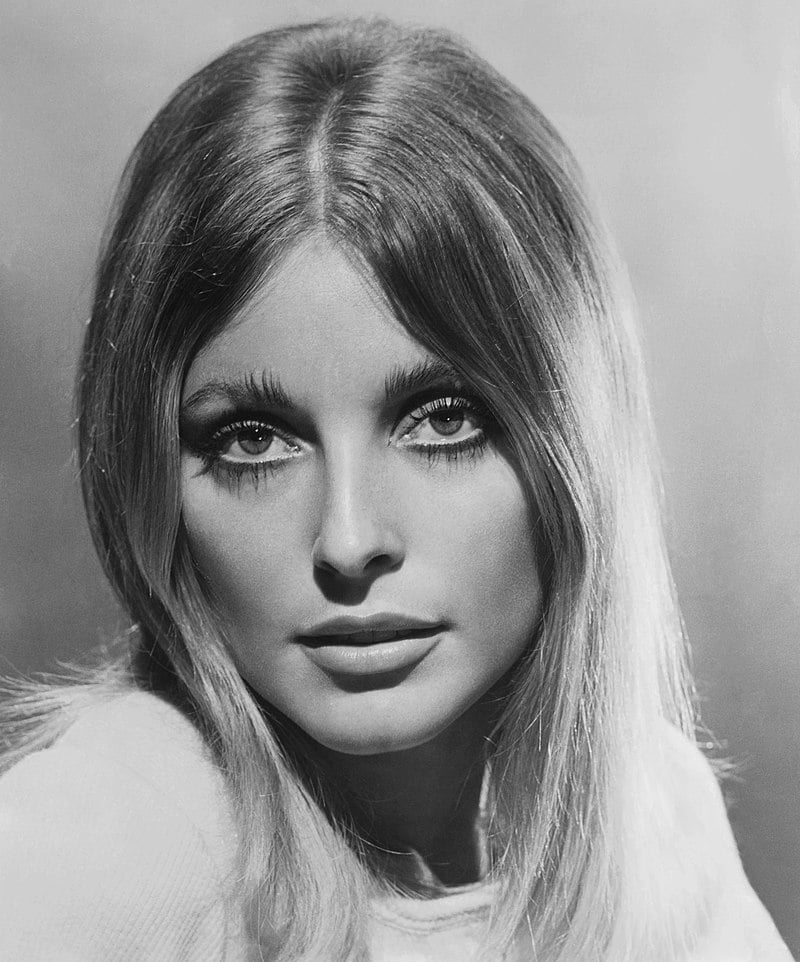
Early Beginnings: A Dreamer on the Move
Born on January 24, 1943, in Dallas, Texas, Sharon Marie Tate lived a life of constant motion. Her father, Colonel Paul Tate, served in the U.S. Army, which meant endless relocations — Texas, Washington, Italy, and beyond. Instead of resenting the instability, Sharon embraced it. Every move became a stage, every encounter a rehearsal for the life she would one day lead.
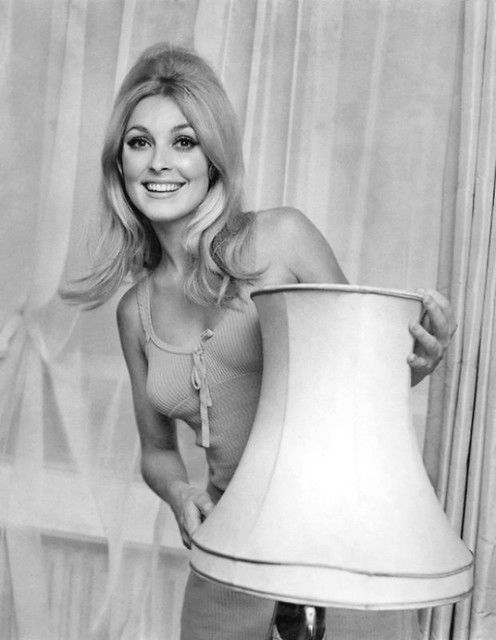
In high school, she began to turn heads not only for her beauty but for her gentle charisma. When she won beauty titles like Miss Richland and Miss Galaxy, people noticed something more than a pretty face. Sharon had presence — that intangible sparkle that couldn’t be taught. Those pageants were just her first curtain call before Hollywood took notice.
Video : 14 S*xy Photos of Sharon Tate
From Model to Muse: Finding Her Place in the Spotlight
Like most stars, Sharon’s journey began humbly — photo shoots, small gigs, and background roles. Her modeling career blossomed quickly; magazines like Seventeen showcased her as the epitome of 1960s chic: soft, natural, and radiant.
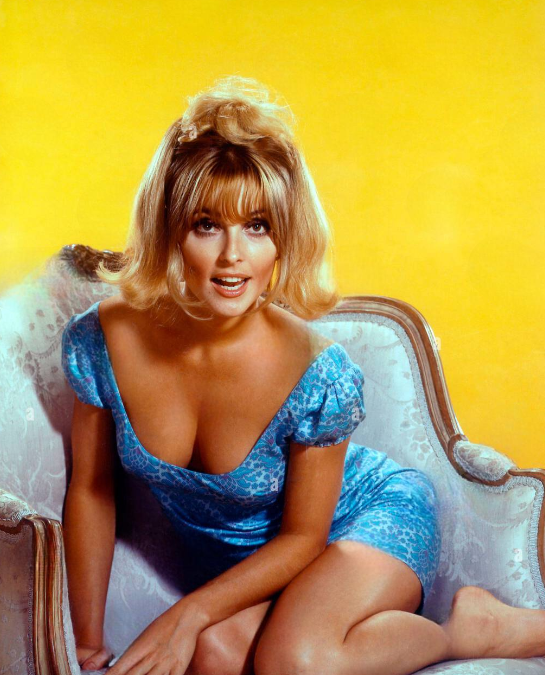
Her first film opportunities came soon after. Though she started with uncredited roles in epics like Barabbas and Hemingway’s Adventures of a Young Man, she approached every set with determination and professionalism. Directors were drawn to her mix of innocence and quiet confidence. Television soon followed — guest appearances on The Beverly Hillbillies and Petticoat Junction brought her face into American living rooms. It wasn’t just luck — it was Sharon’s discipline, humility, and that irresistible sincerity that kept doors opening.
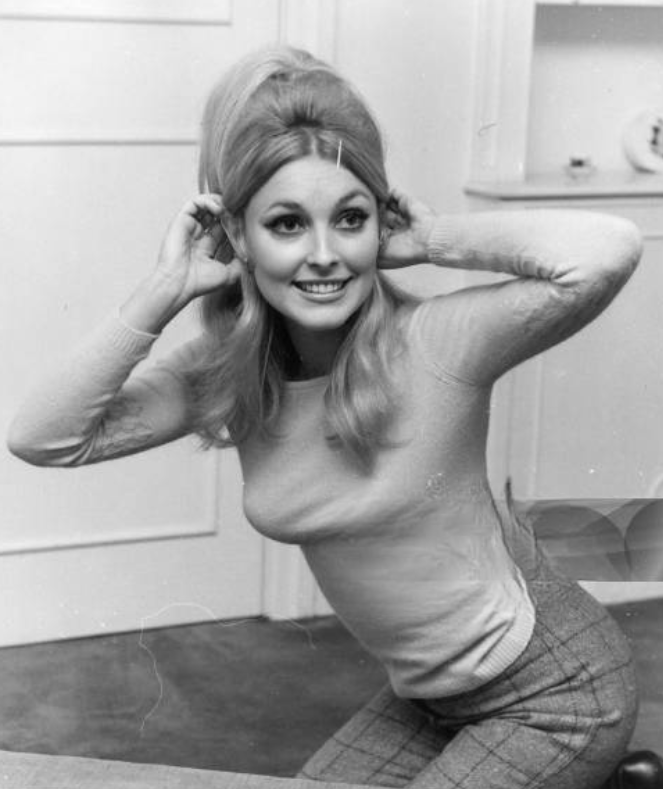
Hollywood’s Golden Girl: The Rise of a Star
Then came the big leap. Sharon’s breakthrough role in Eye of the Devil (1965) introduced her to a wider audience — and to director Roman Polanski. She played Deborah, a mysterious young woman with an ethereal aura that seemed tailor-made for her.
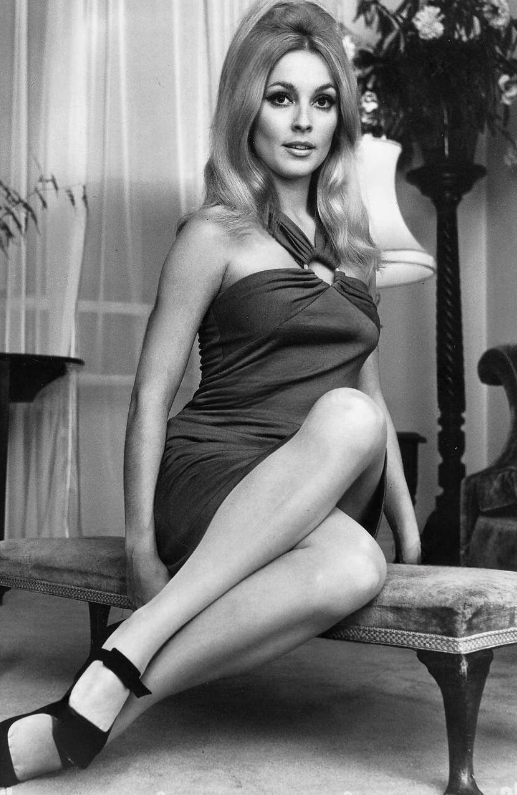
Two years later, 1967 catapulted Sharon into the mainstream. In Don’t Make Waves alongside Tony Curtis, she became the face of California’s beach-blonde dream. Then came Valley of the Dolls (1967), where she portrayed Jennifer North — a role that mirrored her real-life struggle for recognition and respect in an industry obsessed with image. Critics and fans alike were captivated. Sharon Tate wasn’t just another beauty; she could act, and she could make you feel.
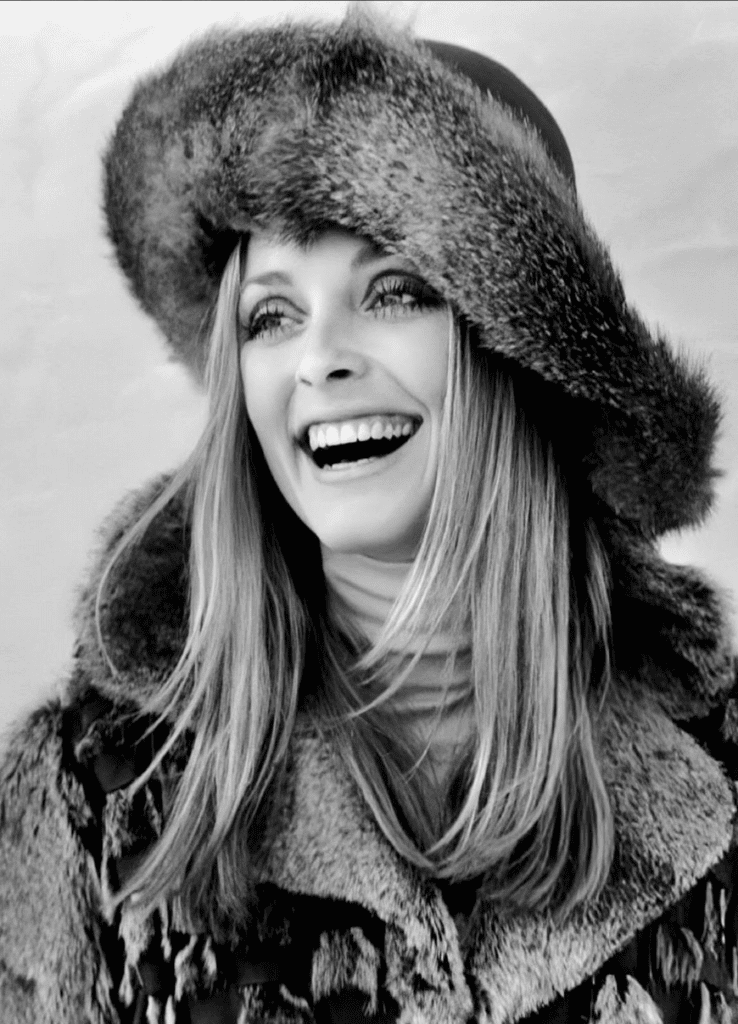
By 1968, her charm had gone global. In The Wrecking Crew with Dean Martin, she radiated wit, elegance, and comedic timing that hinted at an even brighter future ahead. She was on the cusp of superstardom — Hollywood’s new sweetheart with both heart and edge.
Love and Light: Sharon and Roman Polanski
Every era has its iconic couples — and Sharon Tate and Roman Polanski were one of the 1960s’ most intriguing. They met on the set of Eye of the Devil and married in London in January 1968. Theirs was a blend of glamour and artistry: the visionary filmmaker and the luminous actress.
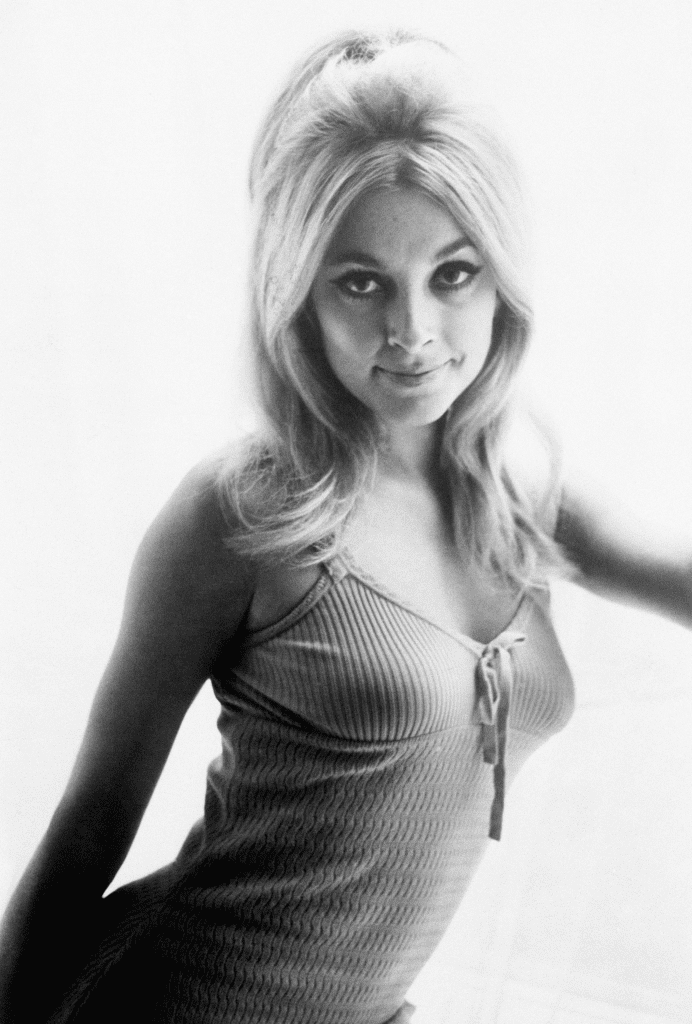
Their life together was full of creative energy. Friends recalled Sharon as nurturing, loyal, and endlessly optimistic. She was ready to start a family, thrilled by the arrival of her first child. In letters and interviews, she spoke of her dreams — raising her baby, continuing to act, maybe even producing someday. For once, everything seemed perfectly aligned — love, career, and motherhood. But fate had written a cruel twist in her script.
Video : Sharon Tate – Photoshoot at Joshua Tree National Park 1968
August 9, 1969: The Night That Stole the Future
That summer evening in Los Angeles began like any other. Sharon, eight and a half months pregnant, invited friends Jay Sebring, Abigail Folger, Wojciech Frykowski, and Steven Parent to her home on Cielo Drive. Roman was in London on business, and she was counting the days until his return.
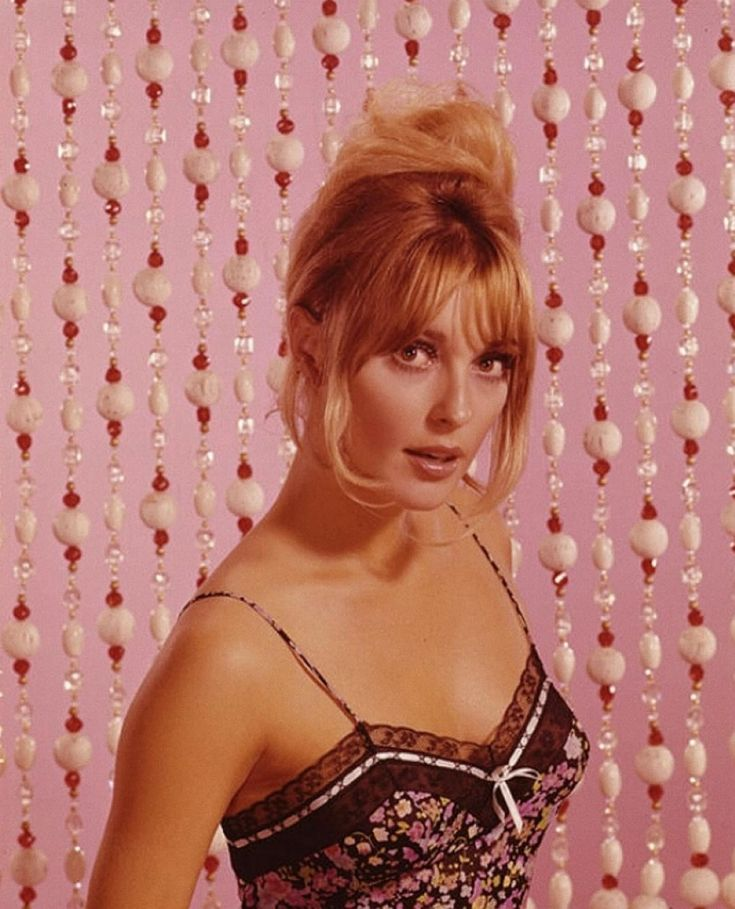
Then, chaos shattered the calm. Members of Charles Manson’s cult, following a delusional command, invaded the house. What unfolded that night defies comprehension — senseless violence that ended five promising lives. Sharon’s final moments were marked by courage and love. She pleaded for her unborn child, offering herself instead. Her grace, even in terror, became symbolic — a light extinguished by darkness but never truly gone.
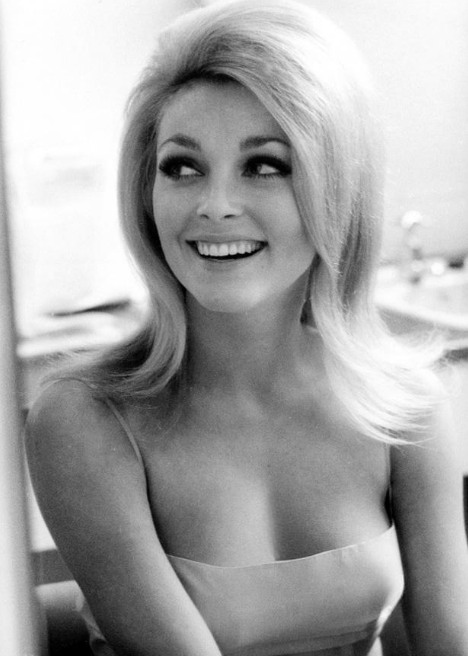
The news devastated Los Angeles. The glamour of Hollywood felt hollow; innocence had been stolen. The Sharon Tate tragedy became a turning point — marking the end of the 1960s’ idealism.
A Legacy Beyond Tragedy: The Spirit That Endures
In the decades that followed, Sharon Tate’s name became more than a headline — it became a movement for compassion and justice. Her mother, Doris Tate, transformed her grief into activism, pioneering victims’ rights in the U.S. Her sisters, Debra and Patti, continued the mission, ensuring that Sharon and her unborn son would never be forgotten.
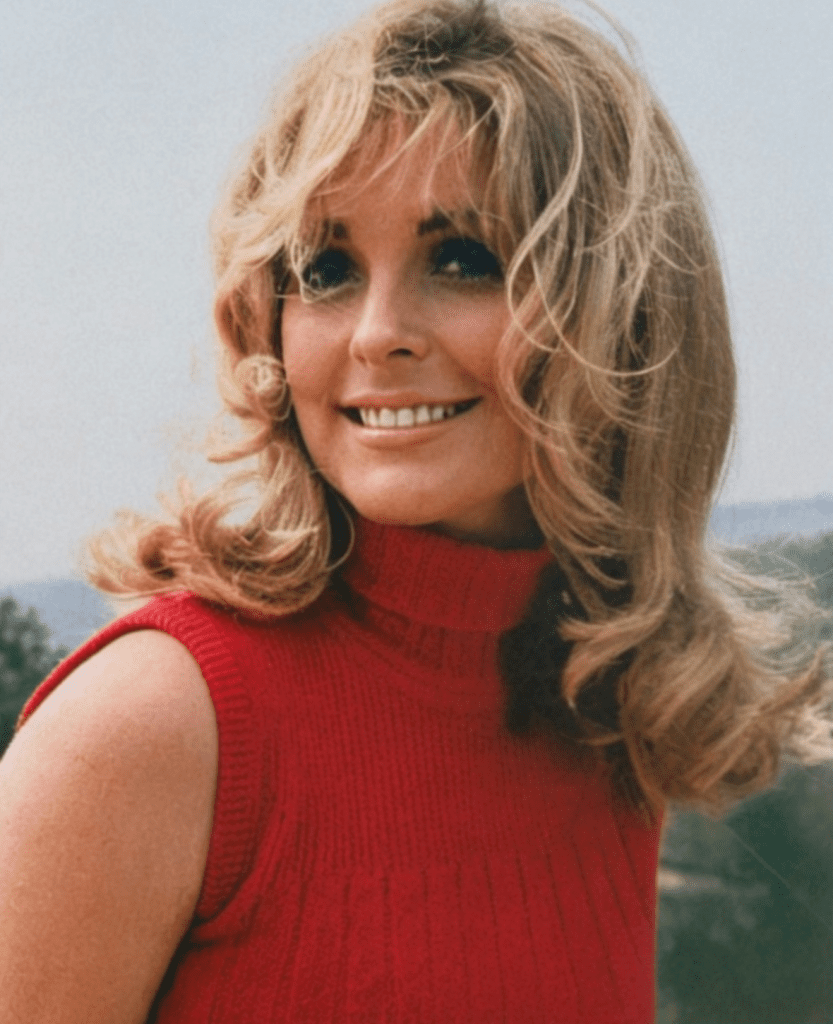
Roman Polanski, haunted by loss, dedicated his film Tess to Sharon’s memory — a quiet tribute from a man forever changed. Books, documentaries, and films revisited her story, but none could fully capture her essence: kind, selfless, and brimming with life.
In 2019, Quentin Tarantino’s Once Upon a Time in Hollywood reimagined her with tenderness. Margot Robbie’s portrayal reminded audiences not of the horror but of the joy Sharon brought — laughing, dancing, living fully. That’s how she deserves to be remembered.
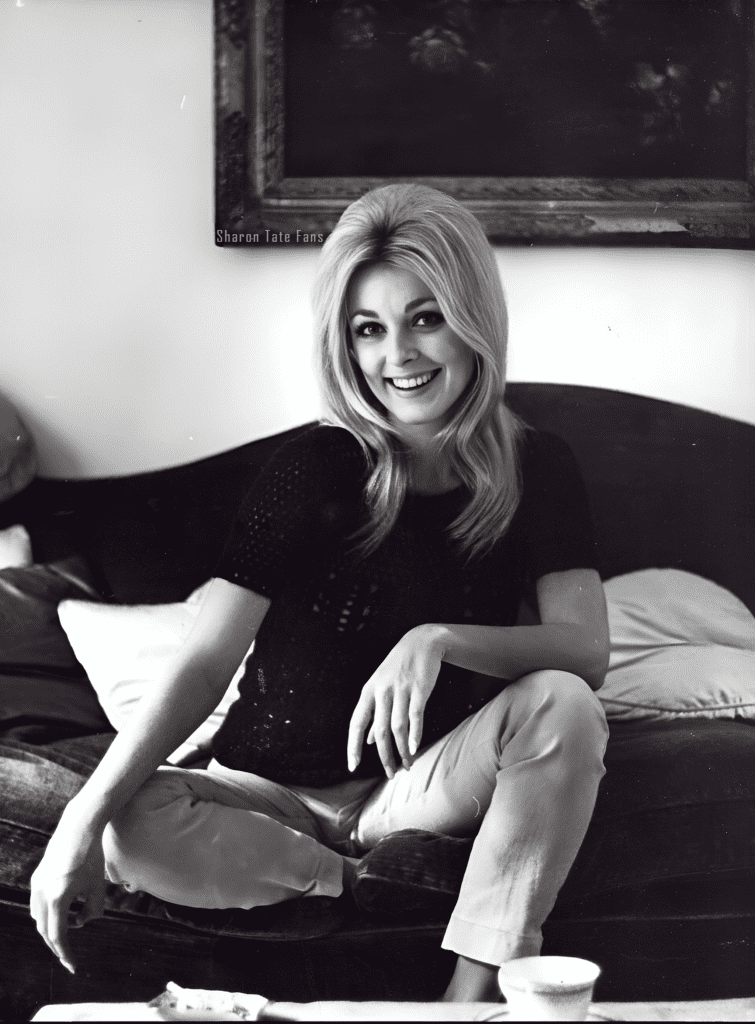
Sharon Tate’s Eternal Glow
More than fifty years later, Sharon Tate remains a symbol of beauty intertwined with vulnerability, ambition tempered by humility. She was a daughter, a wife, an artist — a woman who wanted nothing more than to love and create.
Her films, photos, and interviews still shimmer with the energy of someone who believed in the best of people. And maybe that’s her greatest legacy — the ability to remind us that even in the cruelest endings, grace can prevail.
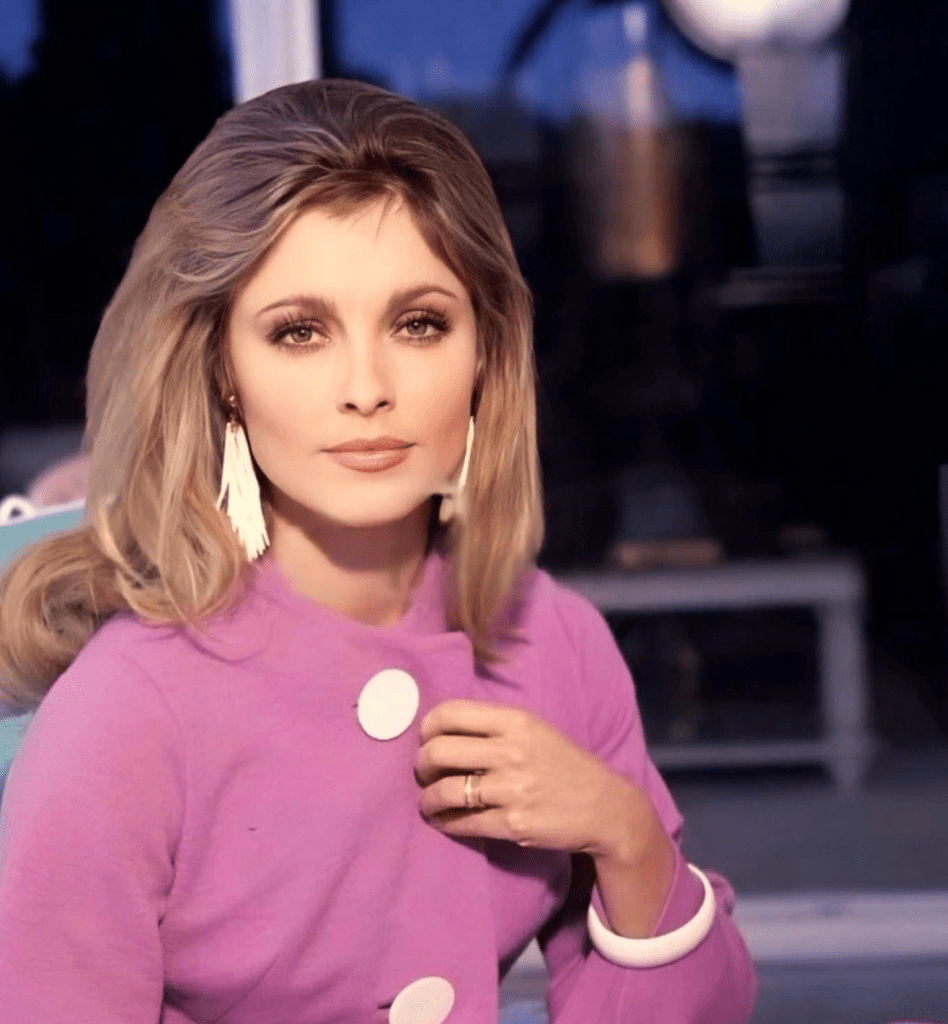
Sharon once said, “We have to make our own heaven.” Perhaps that’s exactly what she did — leaving behind a piece of it for the world to hold onto.
So, when you see the soft glow of a 1960s film reel or hear the dreamy echo of Hollywood’s golden years, think of her. Sharon Tate — a radiant star whose light, though dimmed, will never fade.